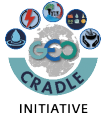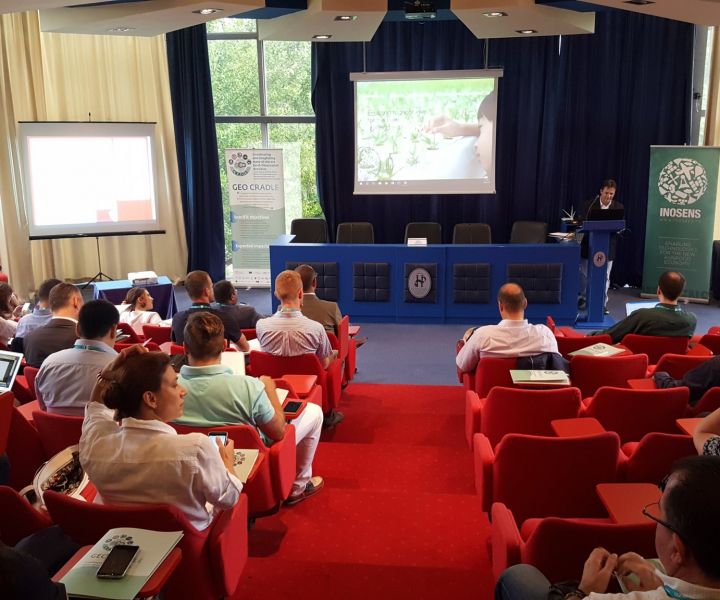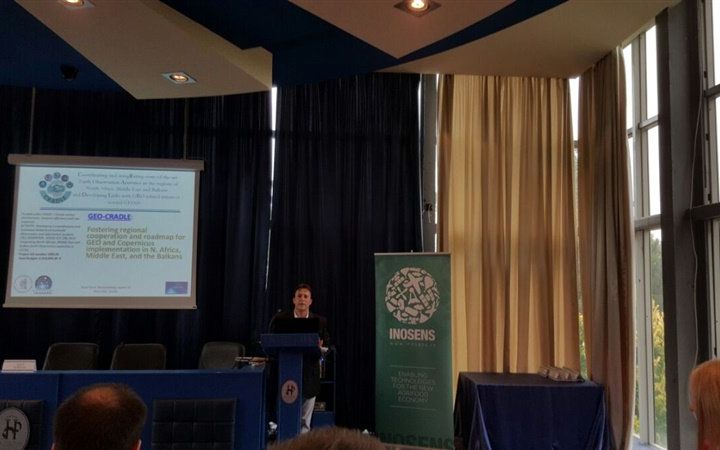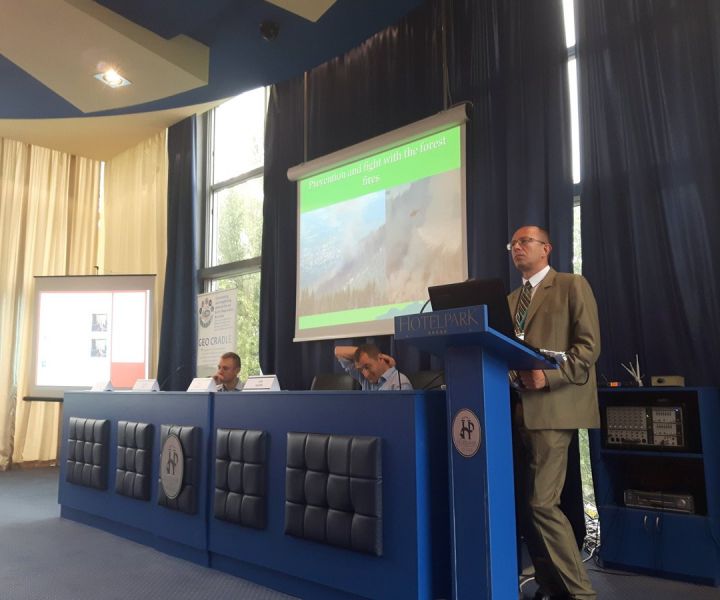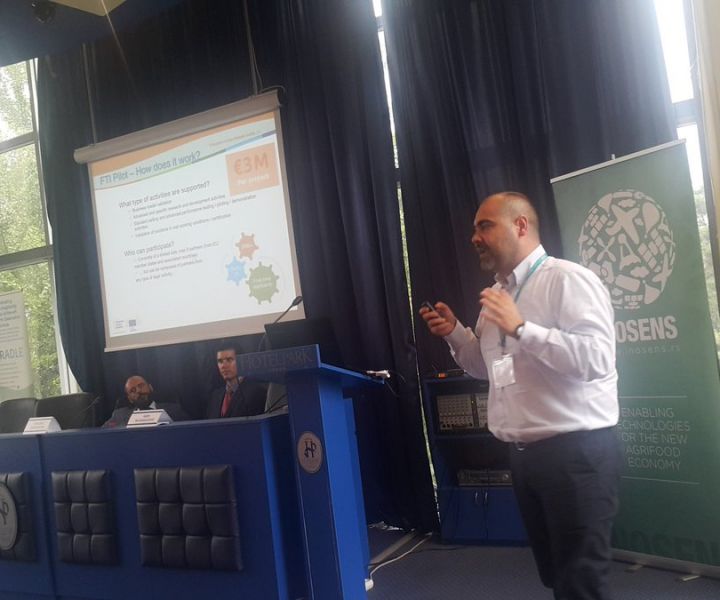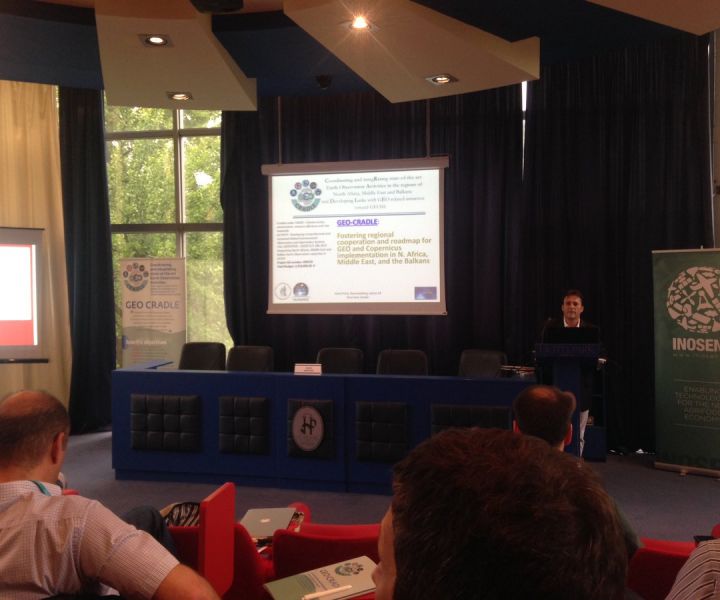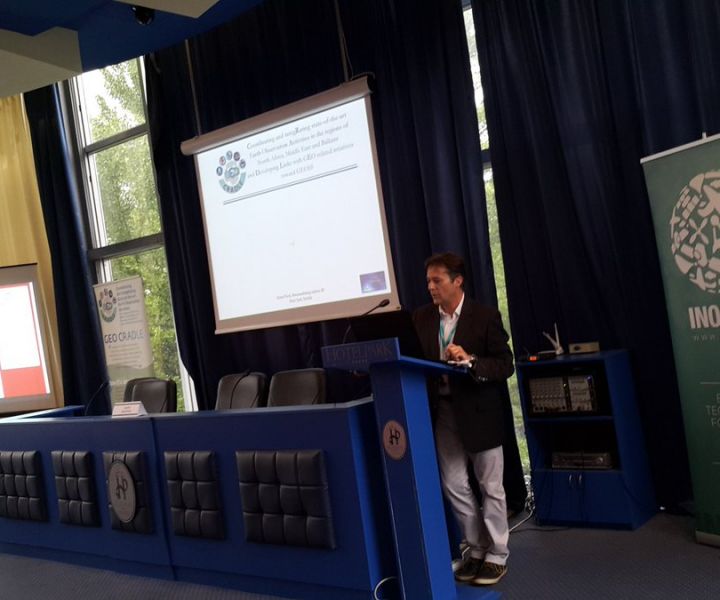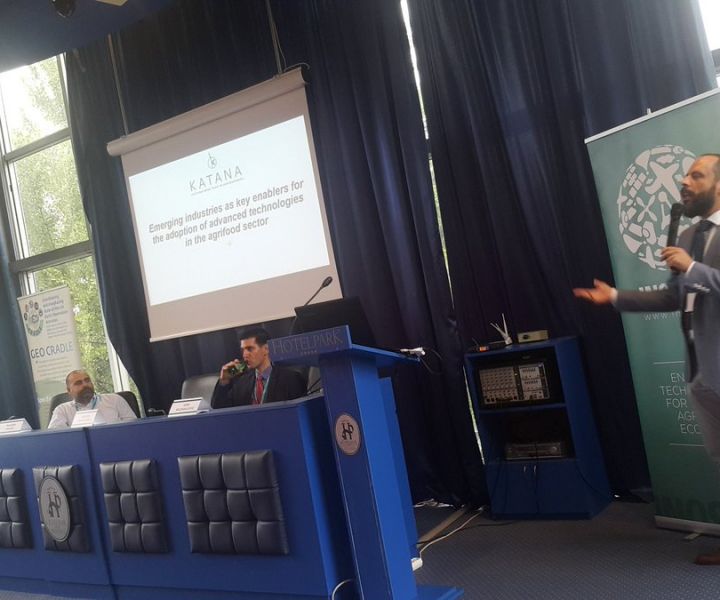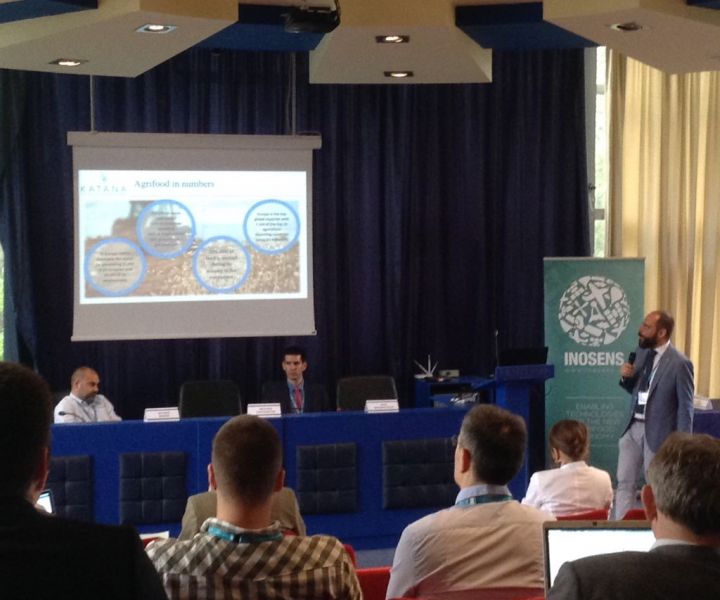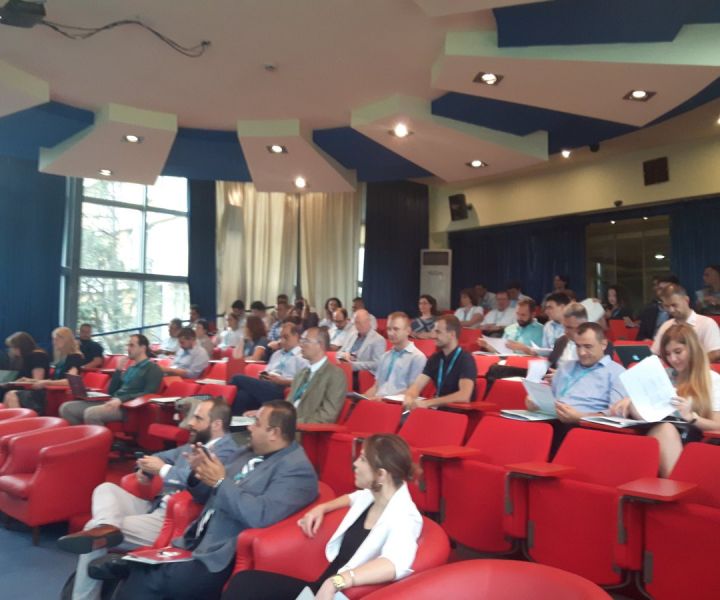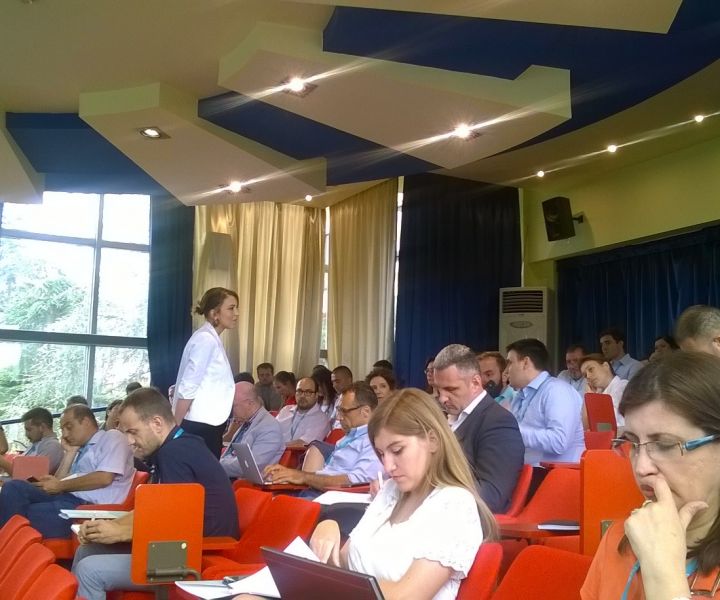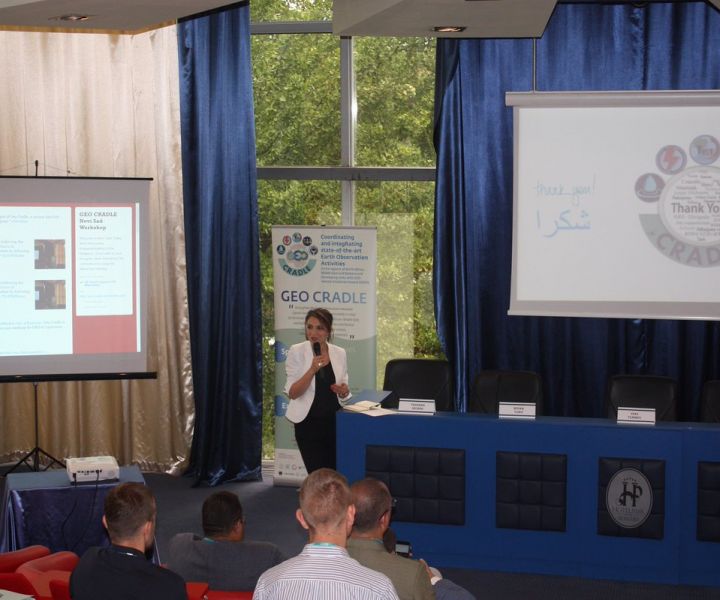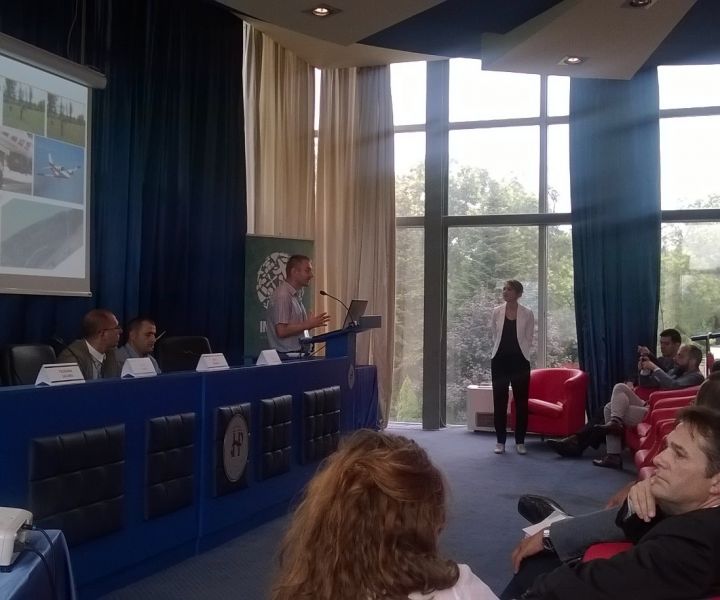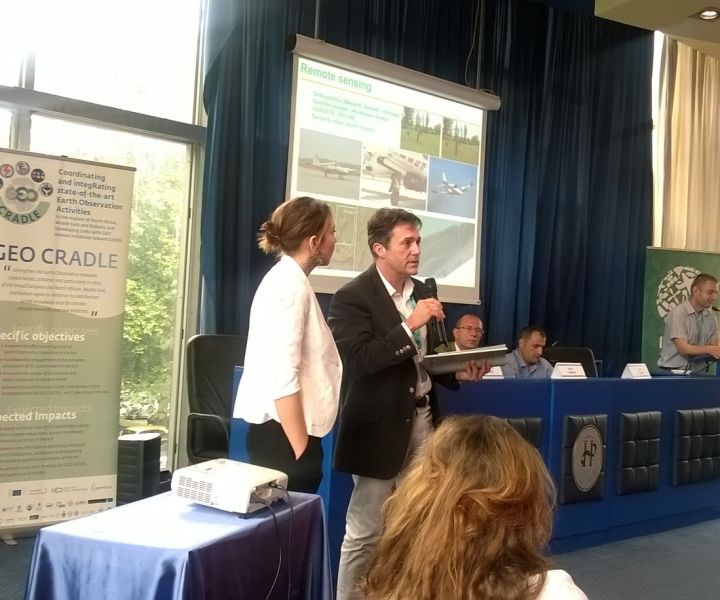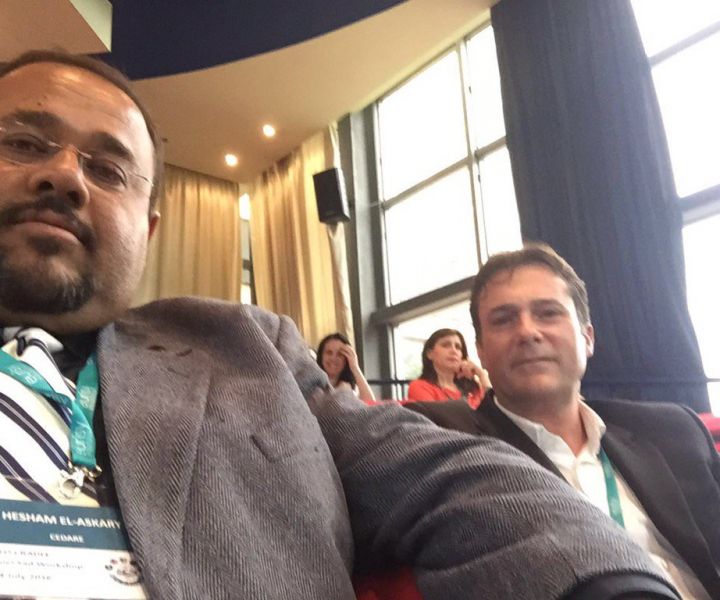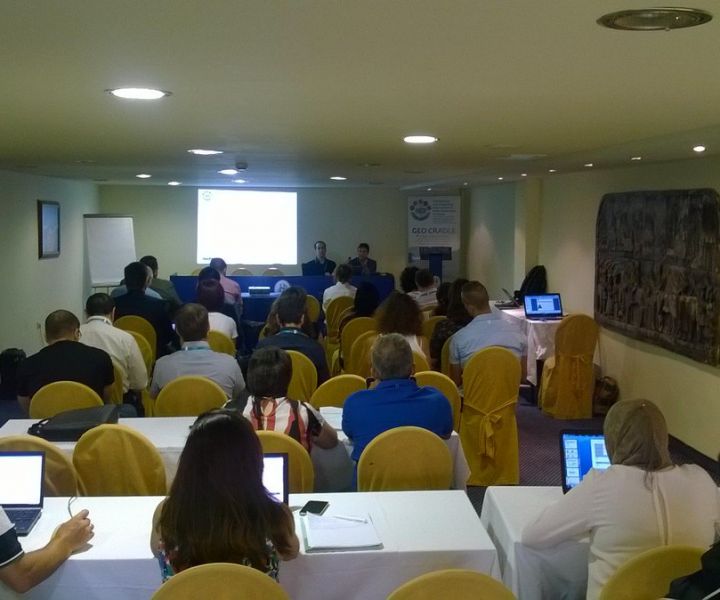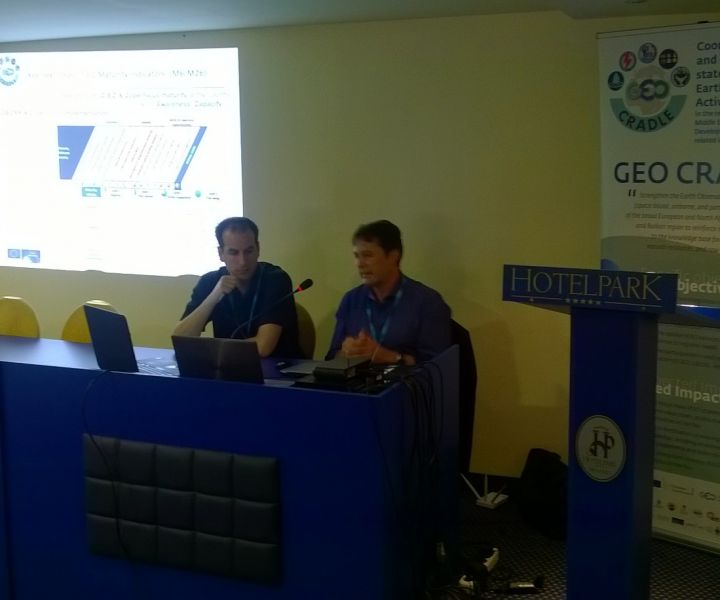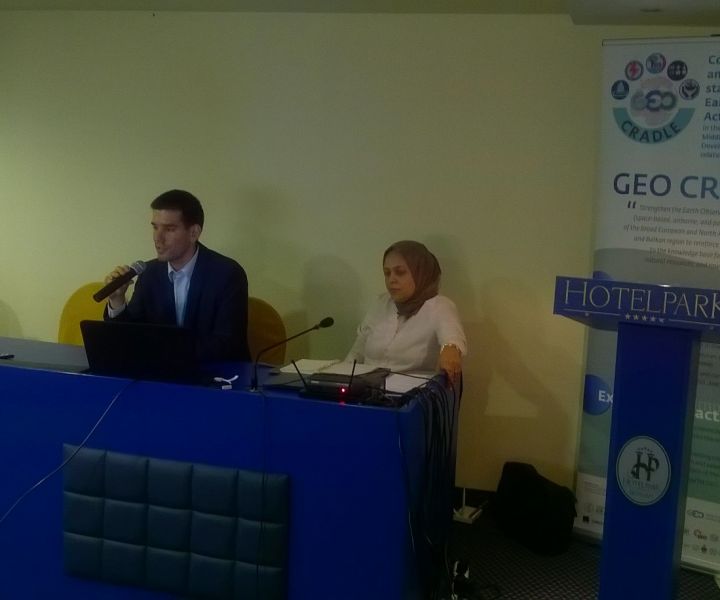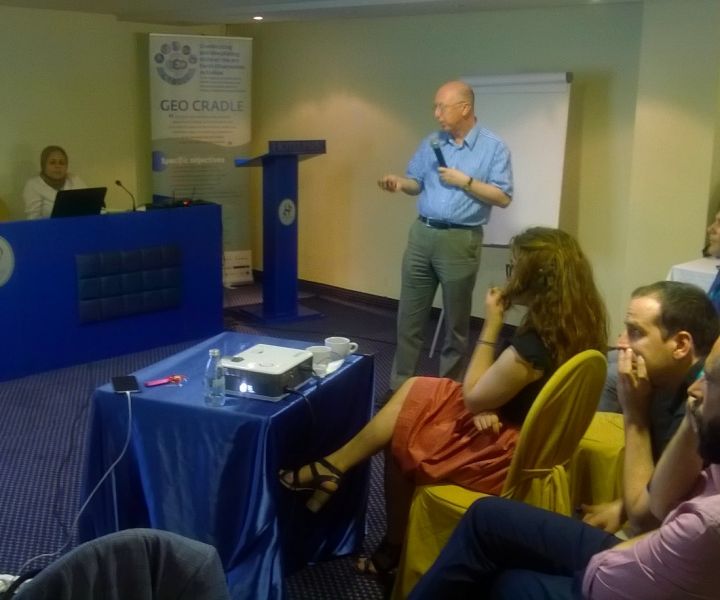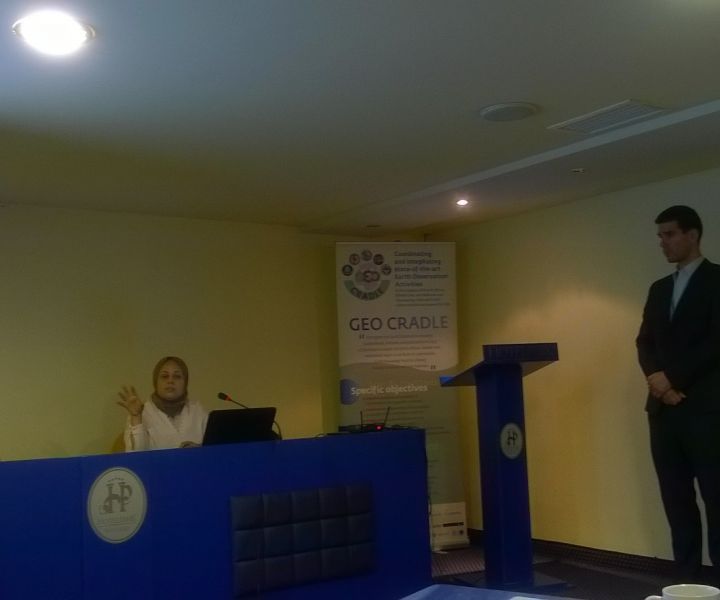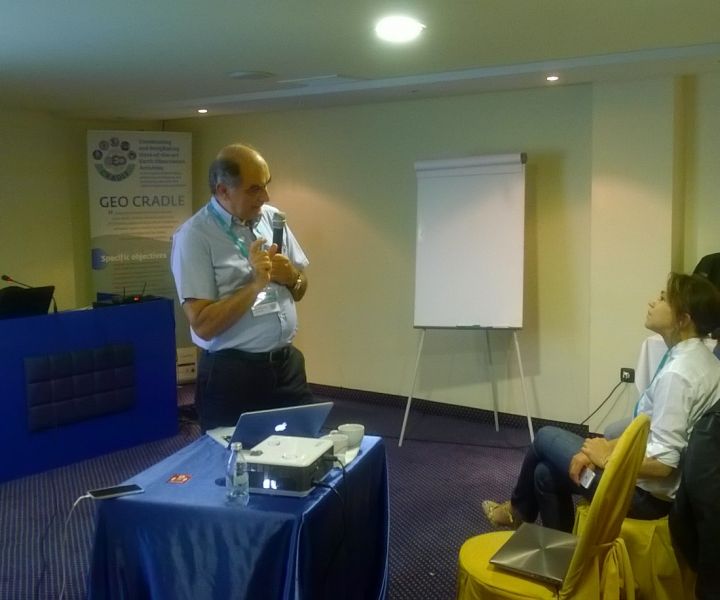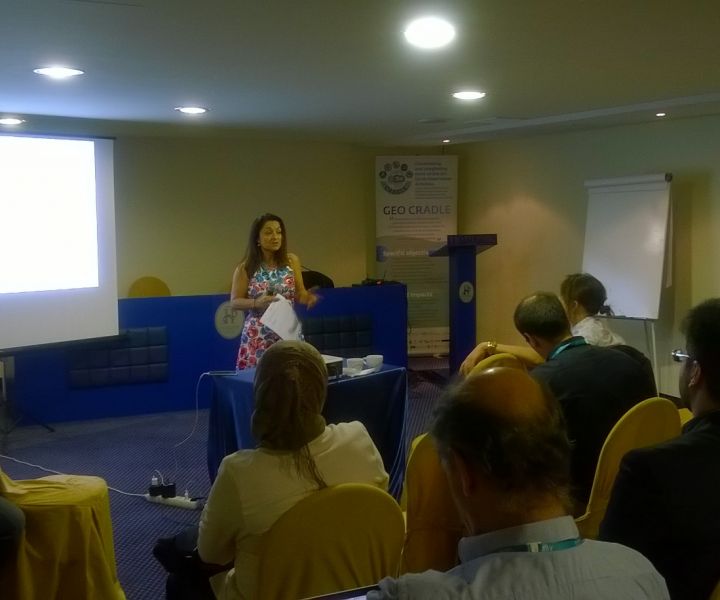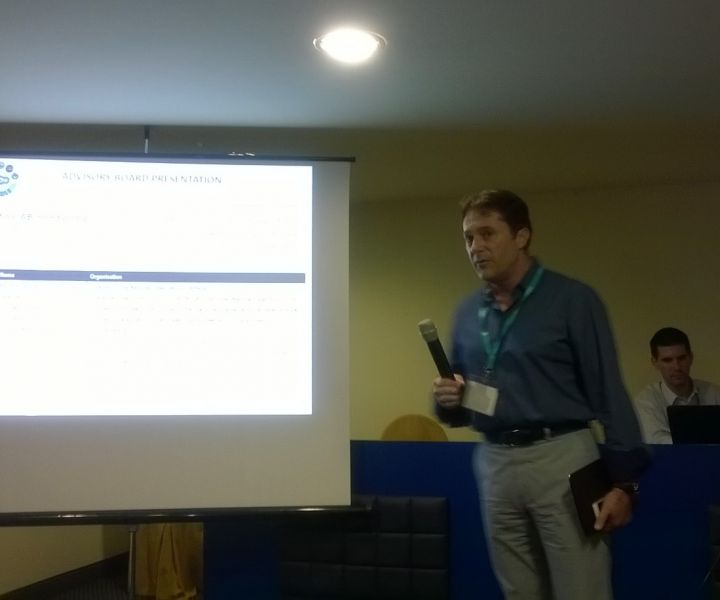GEO-CRADLE Workshop, 14-15/07/2016, Novi Sad
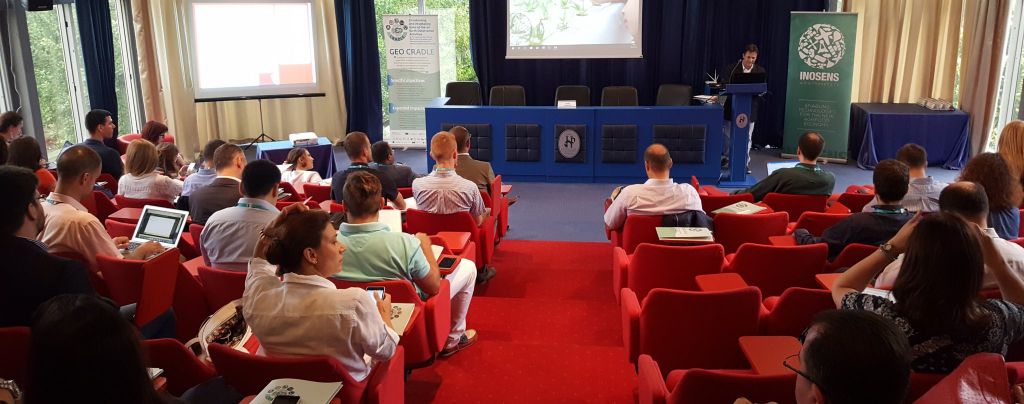
Connecting the dots across the Earth Observation value chain
The Anouncement:
Taking place in the picturesque background of Novi Sad, the event will gather diverse organisations along the data value-added service chain.
The workshop will be a great opportunity for both private and public stakeholders, to discuss transformational issues affecting the uptake and use of geo-information services.
The round table discussions will bring together confirmed operational users of EO services and data providers, as well as interested and potential users with the aim of promoting knowledge transfer and cross-sector fertilization of good practices.
Furthermore, the session will showcase innovation incubators and funding opportunities for start-ups looking to develop info-information services.
The programme can be found here.
Please find more information and register here: GEO-CRADLE Novi Sad Workshop on eurisy.org
The round table discussions will bring together confirmed operational users of EO services and data providers, as well as interested and potential users with the aim of promoting knowledge transfer and cross-sector fertilization of good practices.
Furthermore, the session will showcase innovation incubators and funding opportunities for start-ups looking to develop info-information services.
The programme can be found here.
Please find more information and register here: GEO-CRADLE Novi Sad Workshop on eurisy.org
The Event:
“At InoSens we believe that European projects are a great opportunity for small companies like ours to build a network and establish partnerships across Europe. This is why we are very passionate about GEO-CRADLE. It gives us the opportunity to be members of a forward-looking community built around Earth Observation enabled services in Balkans, Middle East and North Africa. For 2 days in the middle of July, we had an additional reason to be proud about our participation in GEO-CRADLE, as we hosted a regional workshop “Accelerating EO-powered businesses and market take-up”, bringing together 80 participants from over 10 countries.
The event aimed to connect the dots across the Earth Observation value chain, by providing the ground for key players from public sector, academia and innovative SMEs to consider challenges, opportunities, and new approaches in Earth Observation on a regional scale. In the past decade, Earth Observation (EO) has emerged as engine of change to address critical global challenges: manage limited resources, monitor the environment, as well as predict and respond to climate changes. Against this background, the first day of the workshop explored regional success stories as well as areas for improvement of EO-based services in the Balkans. It provided various organizations along the EO value chain with firsthand insights into existing regional capacities and end-user needs, and the opportunity to discuss future possibilities. One of the workshop aims was to introduce the potential of EO to the startup and SME ecosystem. The GEO CRADLE Novi Sad Workshop offered participants a unique opportunity to take part in diverse sessions important for regional stakeholders, including current best practices and EU financing options.
The following day was an internal session for the GEO CRADLE Consortium. International experts and project partners shared their experience and discussed opportunities for strengthening cooperation at regional and European level. Being in the same room facilitated forging of professional links in the EO community on a regional scale to share their lessons learned and present their recommendations for accelerating EO-powered businesses and market take-up. In addition, experts from Europe, Middle East, and North Africa were present to share their experiences and find synergy with Balkan actors.
In the words of my colleague, Igor Milosavljevic, Business Developer at InoSens and a moderator of the second session mentioned: “This is the first time I see something this in the Balkans, particularly because the regional EO community is highly fragmented.” The community has in common the interest to develop practical geo-based services with real impact in the public and private sectors. What made the event particularly fruitful were different yet complementary perspectives we bring on the subject, as academic and research organizations, or SMEs. I recognized opportunities for long term beneficial relationships resulting from this event.”
The event aimed to connect the dots across the Earth Observation value chain, by providing the ground for key players from public sector, academia and innovative SMEs to consider challenges, opportunities, and new approaches in Earth Observation on a regional scale. In the past decade, Earth Observation (EO) has emerged as engine of change to address critical global challenges: manage limited resources, monitor the environment, as well as predict and respond to climate changes. Against this background, the first day of the workshop explored regional success stories as well as areas for improvement of EO-based services in the Balkans. It provided various organizations along the EO value chain with firsthand insights into existing regional capacities and end-user needs, and the opportunity to discuss future possibilities. One of the workshop aims was to introduce the potential of EO to the startup and SME ecosystem. The GEO CRADLE Novi Sad Workshop offered participants a unique opportunity to take part in diverse sessions important for regional stakeholders, including current best practices and EU financing options.
The following day was an internal session for the GEO CRADLE Consortium. International experts and project partners shared their experience and discussed opportunities for strengthening cooperation at regional and European level. Being in the same room facilitated forging of professional links in the EO community on a regional scale to share their lessons learned and present their recommendations for accelerating EO-powered businesses and market take-up. In addition, experts from Europe, Middle East, and North Africa were present to share their experiences and find synergy with Balkan actors.
In the words of my colleague, Igor Milosavljevic, Business Developer at InoSens and a moderator of the second session mentioned: “This is the first time I see something this in the Balkans, particularly because the regional EO community is highly fragmented.” The community has in common the interest to develop practical geo-based services with real impact in the public and private sectors. What made the event particularly fruitful were different yet complementary perspectives we bring on the subject, as academic and research organizations, or SMEs. I recognized opportunities for long term beneficial relationships resulting from this event.”
Grigoris Chatzikostas, Innovation and Business Development Manager, BioSens Institute, University of Novi Sad
“We are grateful to those of you who joined the Novi Sad Workshop. The varied experience was important to realizing an engaging outreach to the regional EO ecosystem, current and potential. We have received very positive feedback from several sources and this is due in no small measure to the entire GEO CRADLE consortium that was present.”
InoSens Team
For more information from InoSens about the workshop here.
|
DAY 1: Accelerating EO-powered businesses and market take-up, 14 July 2016 |
|||
| 1 |
Part 1: Using geo-information services in Balkans |
||
| 1.1 | GEO-CRADLE: Integrating regional capacity & building ecosystems by GEO-CRADLE Project Coordinator | Haris Kontoes | [Presentation] |
| 1.2 | Albanian National Food Authority Presentation for Workshop Novi Sad by National Food Authority Representatives | Lavdosh Zejneli & Ilir Ajdini | [Presentation] |
| 1.3 | The Activities of Executive Forest Agency in Bulgaria by Executive Forest Agency, Bulgaria | Spas Tumbev | [Presentation] |
| 1.4 | Remote Sensing in Support of Sustainable Forest Management in PE Vojvodinasume by Public Company VojvodinaSume, Serbia | Bojan Tubic | [Presentation] |
| 2 |
Part 2: Funding your geo-information service |
||
| 2.1 | Emerging industries as key enablers for the adoption of advanced technologies in the agrifood sector by Innovation and Business Development Manager, BioSens Institute | Grigoris Chatzikostas | [Presentation] |
| 2.2 | EU Funding Opportunities – Introduction to HORIZON 2020 OPEN CALLS by Project Officerat Enterprise Europe Network Serbia | Mladen Radisic | [Presentation] |
| 3 |
Part 3: Using EU funds for EO based services: Case studies |
||
| 3.1 | Slovenia‘s Experience: Using EU Cohesion Fund for Upgrading the Monitoring System by Senior Adviser, Slovenian Environment Agency | Silvo Zlebir | [Presentation] |
| 3.2 | Bringing EO applications to the market: APOLLO PROJECT by Co-Founder, Gilab doo | Dragutin Protic | [Presentation] |
| 3.3 | Smart Detection of Pests by Project Manager, Prozone | Dragan Turkulov | [Presentation] |
